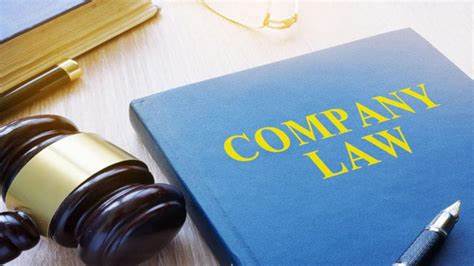Introduction
Insider Trading In Company Law is an important aspect of financial market regulation that seeks to maintain the fairness, transparency, and integrity of securities transactions. Buying and selling a company’s stock using substantial nonpublic information to gain an unfair advantage over other investors is the most basic form of insider trading. The principles of fair market participation are undermined and faith in the financial system is eroded by this practice. Consequently, insider trading has been heavily regulated and governed by legal frameworks worldwide. These frameworks place special emphasis on the fiduciary duties of those who are entrusted with confidential company information.
Categorization Of Insiders
Discovering Insiders
Officers, directors, certain workers, consultants, and stockholders are all considered insiders of the company. For insider trading restrictions to be upheld, it is essential that those who fit these profiles be identified. These individuals, who are collectively known as “Insiders,” have different responsibilities within the company and help run its operations. Because of this, they may be privy to confidential information that could affect the stock value of the company.
Insider As Defined By SEC Rule 10b-5
The definition of a “insider” under SEC Rule 10b-5 extends beyond more conventional positions like director or officer. No one is exempt if their relationship to the Company, its directors, officers, or main stockholders gives them access to important non-public information. The restrictions governing insider trading apply to everyone with access to sensitive information, regardless of their formal position, according to this broad definition. Anyone who receives recommendations from Company Insiders and then trades the Company’s stocks is also subject to this rule, as are workers who obtain material non-public company information.
Incorporation Of Close Associates And Family Members Into The Insider Class
The possibility of information leakage by insiders’ family members or associates is something that the company is aware of. Any member of the insider’s immediate family, any roommate, or even any non-living relative whose securities transactions are impacted or directed by the insider is covered by the insider trading policy. The goal of this all-encompassing strategy is to foil any efforts to go around the policy by enlisting the help of friends and family. All parties associated with the Insiders, whether by blood relations, friendship, or affiliation, must adhere to stringent control and compliance protocols.
Important Confidential Information

What Is Material Inside Information And What Are Its Markings?
Data that, if known, may plausibly impact the value of a company’s shares or influence investment decisions is known as material inside information, and it is a fundamental notion in insider trading legislation. Information is considered “material” if it has the potential to significantly affect an investor’s decision to purchase or sell stocks. This type of data encompasses more than just financial records; it also includes a broad variety of events that may affect how the market views and acts.
Investors must have material inside information when considering transactions since it has the ability to drastically change the overall mix of available information. Though it shouldn’t be the only consideration, it should be heavily weighted in an investor’s calculations.
Important Cases Of Confidential Information
A wide range of company changes that, if known, may greatly affect investors’ decision-making and valuation processes are included in material inside information. Whether positive or negative, adjustments to expected profits fall into a major category. To illustrate the point, this information could sway investor opinions if the Company predicts a large up or downturn in earnings.
Securities offers, including both public and private offerings, are another important area. Disclosure of intentions to issue new securities has the potential to significantly impact market dynamics and investor sentiment. Material inside knowledge also includes financial defaults, such as loan defaults, which indicate possible financial difficulties and could influence investment choices.
The planned merger, acquisition, joint venture, or sale of a substantial asset is a strategic transaction of paramount importance. When investors learn about these plans, it might lead to changes in strategy and changes in stock prices. As they have the potential to greatly affect the Company’s operations and market position, regulatory developments, such as pending approvals, patent registrations, or investigations, are also considered material.
Information that is considered material includes changes in management, such as changes to positions of top leadership. Changes like these have the potential to affect how investors see the Company’s leadership and strategy. Equally important in influencing investor expectations and market competitiveness are announcements of new products, which imply innovation or expansion.
Irrespective of their final outcome, legal issues involving substantial claims, disputes, or developments in litigation are considered material. Serious monetary and public-relations consequences may result from court decisions. In addition, the gain or loss of major clients, suppliers, or business partners is an example of a shift in important business relationships that could have a meaningful impact on the Company’s income sources and market position.
Trading Standards
Restrictions On The Use Of Nonpublic Information In Trading
The unwavering ban on trading with substantial nonpublic information is a cornerstone tenet of the Company’s policy against insider trading. Anybody with information on this delicate data — including officials, chiefs, workers, advisors, and investors — should abstain from trading Organization shares whenever. Exposure of classified data to any outsider is additionally disallowed except if doing so is totally important to additional the genuine financial matters of the organization.
Directors And Officers Must Get Pre-Clearance For Trades
When dealing with the company’s stock, all directors and officials must follow a pre-clearance procedure. To follow this procedure, you must first get approval from the Company’s CFO or CEO before you may execute any stock transactions. All trades must undergo pre-clearance scrutiny to guarantee they do not violate insider trading restrictions. The insider has 72 hours from the time they receive clearance to finalize the deal or purchase.
Why The Concept Of Window Period Is Crucial
When formulating trading rules, the idea of the Window Period is crucial. Directors and officials are authorized to make trades within this specified time frame. When the Company’s quarterly or yearly earnings numbers are made public, the Window Period begins the second trading day afterwards. If earnings are announced on a Monday, for example, the Window Period would begin on Wednesday (barring any holidays) and finish after 20 trading days. The Window Period is important because it establishes a regular schedule for stock transactions. It increases transparency and reduces the appearance of possible insider trading.
Exclusions From The Time Frame And The Method Of Approval
The policy acknowledges that stock transactions may need to occur outside of the Window Period due to unexpected, infrequent, and compelling situations. Even though the rule generally states that all trading must occur during the Window Period. An exemption to the Window Period rule can be requested by insiders in such a situation. In your request, you should specify when you hope to complete the trade, what prompted you to do so, and what the incident that justifies the trade was. Such requests for exceptions are reviewed and approved by the Company’s Chief Financial Officer.
Plans Subject To Rule 10b5-1

Affirmative Action Defense Under Rule 10b5-1 Explanation
Rule 10b5-1 of the Securities Exchange Act of 1934, which gives insiders a way to defend themselves against accusations of insider trading. It is heavily incorporated into the company’s policy regarding insider trading. This rule acknowledges that insiders’ trading decisions were not impacted by material nonpublic information. This is by creating a procedure to prove that insiders may have valid reasons to trade in their company’s stocks.
Adopting A Rule 10b5-1 Trading Plan Requirements
Insiders who want to use the affirmative defense under Rule 10b5-1 when they set up a trading strategy need to make sure they follow these rules:
Timing Of Adoption
At the time of adoption or effectiveness of the trading strategy, the insider must not have knowledge of any substantial nonpublic information pertaining to the Company. The inclusion of this provision guarantees that the launch of the plan was not affected by any major non-disclosure of information.
Detailing Of Resources
You need to either give a written method, algorithm, or computer program to figure out the quantity, price, and date of trades, or the plan has to say it explicitly. Another option is for the plan to hand over trading authority to an outside party. That is not in possession of any significant nonpublic information.
Display Of Commitment To The Strategy
It is up to the insider to show that all deals that fall under the plan’s control follow its rules. You can weaken the affirmative defense by going against the plan, doing activities that act as a hedge, or switching stances that are similar.
How To Submit And Evaluate Plans For Rule 10b5-1
The following steps must be taken by insiders who want to set up a trading plan in accordance with Rule 10b5-1
Strategic Document
The plan needs to be put down on paper, even if it uses a formula or specifies trade details.
Communication With The COO And CFO
The Company’s COO and CFO must approve all trading strategies subject to Rule 10b5-1 before they may be implemented. Verifying compliance with applicable laws and the Company’s rules is the purpose of this phase.
Window Period Execution
Plan execution is time-sensitive and must occur inside a Window Period; this highlights the ongoing significance of structured trading periods under Rule 10b5-1.
60-Day Grace Period
Trading under the plan cannot begin until sixty days following the execution date, which is an extra precaution to avoid short-term manipulation or misuse.
Considerations For Trade Timing And Execution Under Rule 10b5-1
Trades executed by insiders in accordance with Rule 10b5-1 plans must be carefully considered in terms of timing. This policy further emphasizes its dedication to structured trading periods. It is by requiring all trades conducted under Rule 10b5-1 plans to take place within a Window Period. In order to ensure compliance with Company policy and oversight, directors and officers must still get pre-clearance for trades during the Window Period. It happen even while operating under a Rule 10b5-1 plan.
The Repercussions Of Violating Restrictions On Insider Trading
Private Actions Filed By Stockholders Against Insiders
Private lawsuits may be filed against insiders who trade on company secrets by the company’s stockholders. Anyone who owns shares of stock, whether they bought or sold, has the right to sue insiders who they believe have broken the law. Private lawsuits like these have the potential to hold suspected insiders financially liable. And perhaps include claims for stockholder losses caused by insider trading.
Legal Proceedings Initiated By The SEC
If someone is discovered to be engaging in insider trading, the SEC can take civil enforcement action against them. Financial fines, injunctions, and cease-and-desist orders are some of the possible consequences of such actions. Civil enforcement actions can result in substantial financial and regulatory ramifications for insiders convicted of violating the securities laws, which is the principal goal of the SEC in its pursuit of investor protection.
Possible Indictments For Serious Crimes
Insiders may be subject to criminal felony charges in the event of extremely serious infractions. Federal prosecutors may press criminal charges, which might result in harsh penalties including fines or jail time, or even both. Insiders’ legal and ethical obligations are brought to light in criminal procedures, which highlight the gravity of insider trading breaches.
The Financial And Public Expenses Of Fighting Insider Trading Allegations
Accused individuals face significant personal and reputational expenses when they defend themselves against insider trading claims. Costs associated with hiring an attorney to represent you in a civil or criminal case can quickly add up. Not only can accusations of insider trading have serious monetary consequences. But they can also permanently damage a person’s professional and personal reputation. It can affect their position in the economic world.
Stock Transactions

No Short Sales, Puts, Or Call Options Allowed
No one with an insider trading relationship to the company may ever sell their shares for less than their market value or trade, write, or buy stock options in the company. The market becomes even more complex and risky due to options trading. And short sales, in which the seller sells securities that they do not actually own. By outlawing these actions, the Company is demonstrating its dedication to honest and open trading processes and protecting its stock price against manipulation.
The Consequences Of Market Share
An insider trading accusation cannot be defended by the fact that a stock sale occurred as a consequence of a margin call, as stated in the insider trading policy. The importance of insiders appropriately managing their financial positions. This is to avoid triggering margin calls is highlighted by the fact that courts consider such sales as within their control. The policy’s stated goal is to stop insiders from trading with significant nonpublic information. It is by limiting their ability to use margin sales.
Standards For The Exercise And Sale Of Stock Options
Company insiders have unlimited opportunities to exercise their vested stock options. But there are stringent regulations regarding the selling of the shares acquired through these exercises. Prior to the open Window Period, insiders must follow the pre-clearance process and get approval. Crucially, before selling these option shares, insiders must not have knowledge . That could be considered substantial nonpublic information about the company. This meticulous control keeps things open and in line with ethical and legal requirements. It is by making sure that stock option exercises fit within the insider trading policy’s larger framework.
Tipping Bans
Understanding Tipping And Its Impact
A “tipping” incident occurs when an insider divulges nonpublic knowledge to a third party, whether on purpose or by accident. The Company’s policy on insider trading forbids such behavior. Because it distorts the market and makes trading in securities less fair, tipping can have far-reaching effects. The disclosure of inside knowledge to third parties is subject to regulatory examination. And sanctions regardless of whether the insider personally engages in trading based on the tipped information.
Restrictions On The Disclosure Of Confidential Information By Insiders
Regardless of whether it’s friends, relatives, associates, or anybody else not authorized to receive such information. Insiders are absolutely forbidden from disclosing nonpublic information to outside parties. The prohibition goes beyond just trading operations and highlights the Company’s dedication to protecting confidential information and preventing its misuse. Extreme care must be taken by insiders to avoid unintentional tipping and keep sensitive information within approved circles.
Penalties For Individuals With Inside Knowledge Who Leak Information That Causes Securities Trading
Similar sanctions apply to insiders who tip others, causing them to trade stocks, as to those who actively trade on substantial nonpublic knowledge. Insiders are nevertheless held responsible for the outcomes of their actions according to the company’s policy on insider trading, regardless of whether they personally profited from the knowledge or not. Parties harmed may file private lawsuits, regulatory agencies like the SEC may take civil enforcement proceedings, and, in extreme circumstances, criminal accusations may be leveled. The Company is determined to take the necessary steps to combat the widespread practice of tipping. Which it views as a flagrant violation of legal and ethical norms.
Section 16 Liability
For profits made from certain stock transactions, insiders like officers, directors, and substantial stockholders are liable under Section 16 of the 1934 Securities Exchange Act. Despite being a part of federal securities laws and regulations, Section 16 does have legal ramifications for businesses and their employees. How does company law intersect with Section 16 liability?
Corporate Ethics And Regulations
Company boards, particularly those whose stock is listed on a public exchange, have the important responsibility of ensuring that their companies are in full compliance with Section 16 and other federal securities laws. For liability concerns to be avoided, boards must make sure that insiders understand and follow the rules. In order to prevent insider trading that could lead to Section 16 liability, companies can implement compliance programs and internal controls. Making sure insiders know the legal ramifications and how to report it could be part of the solution.
Protocols For Dealing With Inside Information
Integrity with Business Practices: Many companies’ policies on insider trading are in line with the guidelines provided in Section 16. To guarantee conformity with federal securities laws and internal business regulations, these policies may include extra rules and restrictions. For specific stock transactions, companies may institute pre-clearance procedures to make sure that insiders get the green light before trading. Section 16’s overarching objective is to reduce the prevalence of short-term speculative trading, and this aligns with that objective.
Director And Officer Effects On The Company
Director and officer personal liability for profits from specific stock transactions within a given time frame is imposed by Section 16. Stock transactions and timing must be carefully monitored by individuals in these roles. It is due to the personal liability that comes with them. Section 16’s six-month holding period forces corporate officers and directors to avoid short-term trading . It is by encouraging them to align their interests with the company’s overall performance and strategic goals.
Accounting And Transparency
Under Section 16, the SEC must receive specific forms from insiders. It is in order for them to reveal any stock transactions they have made. The market will be more transparent if companies make sure their insiders report as required. Another level of transparency for stakeholders and investors is when companies are required to publicly disclose insider transactions in their periodic reports.
Impact Of Failure To Comply
Insiders may face disgorgement of profits and other legal ramifications if they fail to comply with Section 16. Everyone concerned feels the effects, and the company’s credibility and confidence among investors may take a hit as well. The potential for insider violations of Section 16 to harm a company’s reputation is a real concern. If the organization values its reputation and public standing, it must uphold a strict culture of compliance.
Conclusion
Within the complex web of corporate law, discussions surrounding insider trading serve as evidence of the continuous effort to maintain honest and equitable markets. To prevent the loss of trust from investors and the watering down of corporate transparency, the laws governing this practice are robust. Prosecuting and preventing insider trading remains a challenging task due to the ever-changing nature of global financial markets. Fairness, transparency, and fiduciary responsibility are principles that everyone—regulators, businesses, and individuals—must adhere to. Unveiling the legitimacy of insider trading in corporate law is characterized by a dedication to cultivating a fair and reliable financial environment.
Frequently Asked Questions
1. What Does Company Law Consider To Be Insider Trading?
When a person purchases or sells a company’s stock while knowing that such information is not publicly known, they are engaging in insider trading. It usually encompasses the deeds of directors, employees, officers, and anybody else with access to secret business data.
2. In The Context Of Laws Pertaining To Insider Trading, How Are Insiders Defined?
The term “insider” is commonly used to describe a company’s executives, directors, and employees. A person may also be considered an insider if their relationship with the company gives them access to information that is not publicly known.
3. What Are The Consequences Of Breaking The Rules On Insider Trading?
Fines, disgorgement of gains, jail time, and civil sanctions are some of the possible punishments for violating insider trading laws. Intent, amount, and market impact are three variables that determine the severity.
4. To What Extent Must Insiders Reveal Their Holdings In Company Securities When Trading?
Yes, insiders are usually obligated to inform regulatory agencies and, in certain instances, shareholders about their trading in the company’s securities. Because of this, insider trading activities can be more easily monitored, and transparency is improved.
5. How Can Businesses Stop Employees From Engaging In Insider Trading?
Companies can establish internal policies and codes of conduct as part of strong corporate governance practices. In order to cultivate a compliance culture, it is essential to educate employees regarding the ethical and legal consequences of engaging in insider trading.


